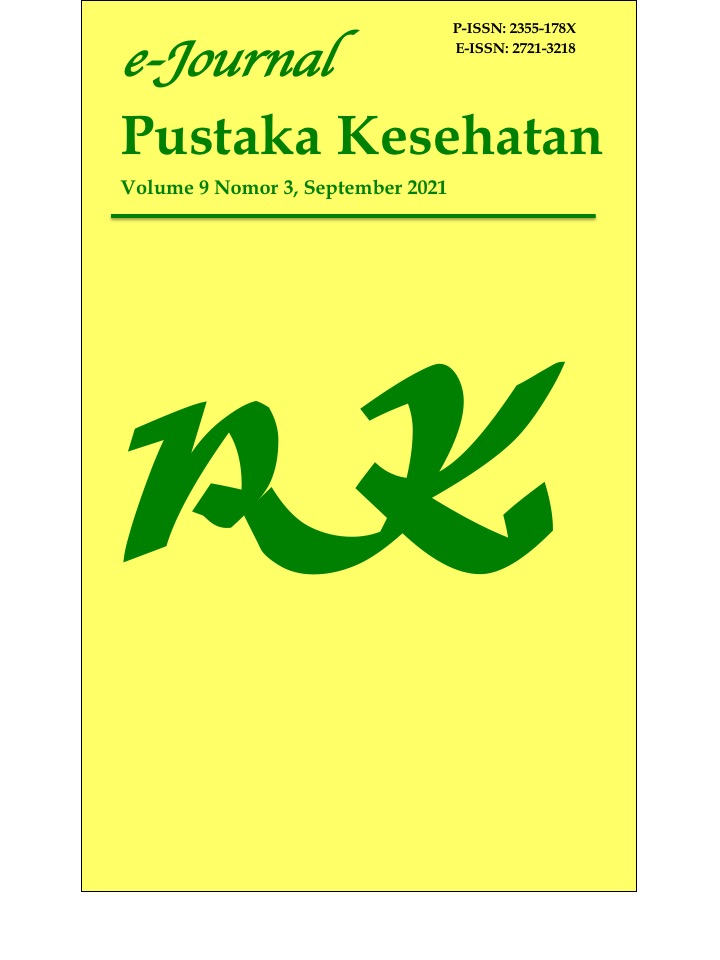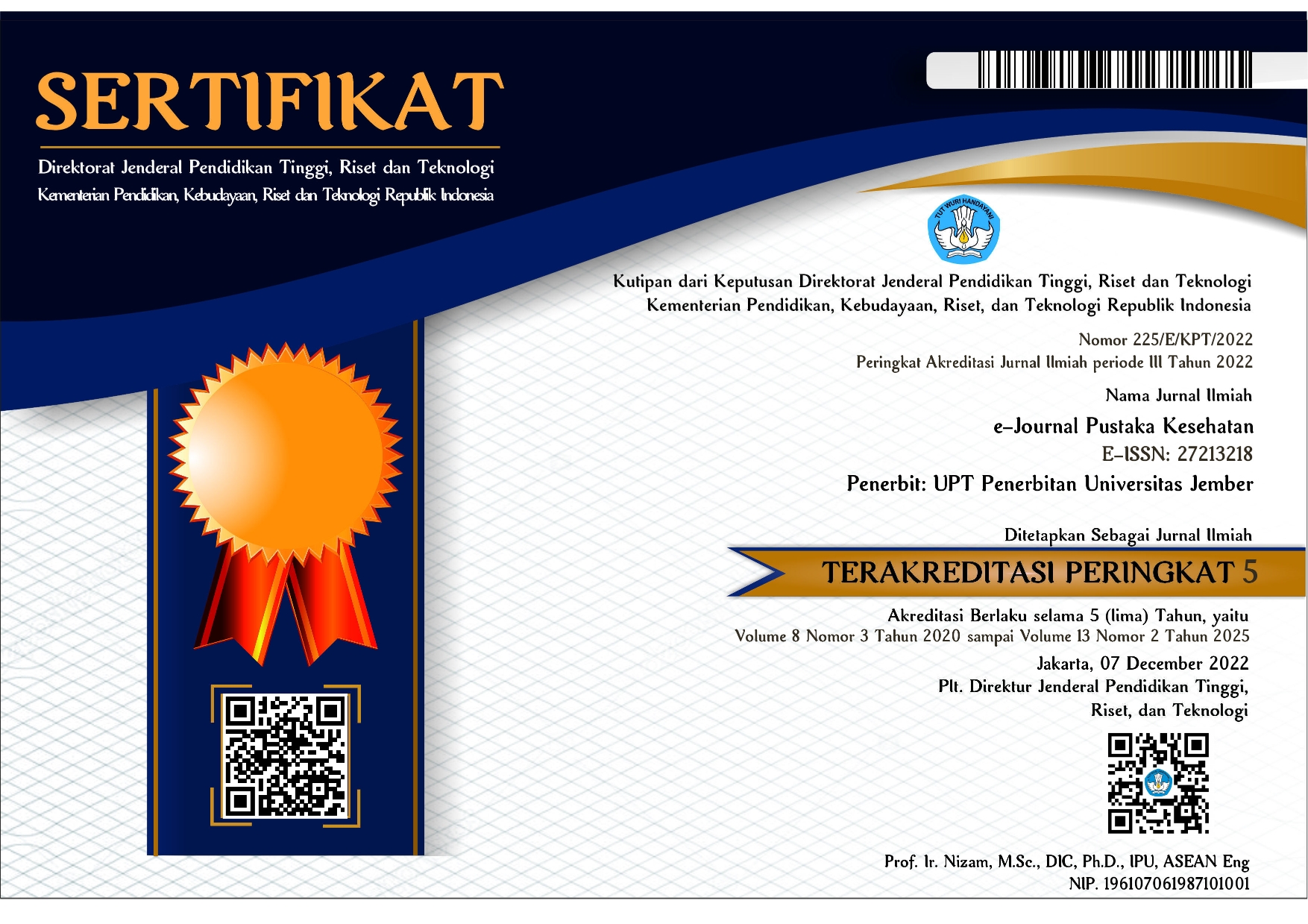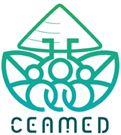Gambaran Efikasi Diri Maternal pada Ibu Remaja di Wilayah Kerja Puskesmas Sukowono Jember
Abstract
Adolescent mothers are women with a transition period between childhood and adulthood but must act as parents. Adolescent mothers have limited experience in caring for babies, thus often feeling incompetent and not confident. Maternal self-efficacy is self-confidence in the ability, a mother's competence perceived in caring for her baby, and perceptions of the role of mother. Confidence is a factor that influences the adaptation and achievement of a mother's identity in baby care and the closeness of mother to child. This study aimed to determine the description of maternal self-efficacy of adolescent mothers at the Public Health Centre Sukowono Jember Regency. This research used method analytic descriptive and total sampling methods with 50 adolescent mothers as respondents. Data were analyzed by univariate analysis. These results showed that more than half of the total respondents had low maternal self-efficacy (54%). Low maternal self-efficacy will delay the transition of the mother's role and limit the satisfaction in achieving the mother's role. Therefore, Nurses are important to pay more attention to adolescent mothers in pre-pregnancy services to improve their ability and increase their readiness and skills to carry out their roles as new mothers.
References
[2] Santy FN. Pengalaman Remaja Perempuan Single Parent Menjalani Peran Baru Sebagai Ibu di Wilayah Kerja Puskesmas Kecamatan Panjang Kota Bandar Lampung. Tesis. Universitas Indonesia. Program Magister Ilmu Keperawatan. 2011.
[3] Oktafiani S, Fajarsari D, Mulidah S. 2014. Pengaruh Usia Dan Konsep Diri Terhadap Pencapaian Peran Ibu Saat Bayi Usia 0-6 Bulan Di Desa Bojongsari, Kecamatan Bojongsari, Kabupaten Purbalingga. Jurnal Ilmiah Kebidanan. 2014; 5(1): 33–42.
[4] Lowdermilk DL, Perry SE, Cashion K. Buku Keperawatan Maternitas Edisi 8. Jakarta : PT. Salemba Emban Patria. 2013.
[5] Leahy-Waren, McCarthy G, Corcoran P. First-time mothers: social support, maternal parental self-efficacy and postnantal depression. Journal of Clinical Nursing. 2011; 21: 388-397.
[6] Azmoude E, Jafarnejade F, Mazlom SR. The Predictors for Maternal Self-efficacy in Early Parenthood. J Midwifery Reprod Heal. 2015; 3: 368-376.
[7] Elek SM, Hudson DB, Bouffard C. Marital and parenting satisfaction and infant care self-efficacy during the transition to parenthood: the effect of infant sex. Issues in Comprehensive Pediatric Nursing. 2003; 26(1): 45-57.
[8] Teti DM, Gelfand DM. Behavioral competence among mothers of infants in the first year: the mediational role of maternal self-efficacy. Child Development. 1991; 62(5): 918-929.
[9] Tucker S, et al. The long-term efficacy of a behavioral parent training intervention for families with 2-year-olds. Research in Nursing & Health. 1998; 21(3): 199-210.
[10] Salonen AH. et al. Parenting self-efficacy after childbirth. Journal of Advanced Nursing. 2009; 65(11): 2324-2336.
[11] Khan SA. Baby Steps: A Bonding Program For Adolescent Mothers and Their Infants. Diss Abstr Int Sect B Sci Eng. 74. 2013.
[12] Bandura A. Self Efficacy: Toward a Unifying Theory of Behavior Change. Psychological Review. 1997; 84: 191-215.
[13] Bryanton J. et al. Predictors of early parenting self-efficacy: results of a prospective cohort study. Nursing research. 2008; 57(4): 252-259.
[14] Jones TL, Prinz RJ. Potential roles of parental self-efficacy in parent and child adjustment: a review. Clinical Psychology Review. 2005; 25(3): 341-363.
[15] Ruchala PL, James DC. Social support, knowledge of infant development, and maternal confidence among adolescent and adult mothers. Journal of Obstetric, Gynecologic, and Neonatal Nursing. 1997; 26(6): 685-689.
[16] Barnes CR, Adamson-Macedo EN. Perceived Maternal Parenting Self-efficacy (PMP S-E) tool: development and validation with mothers of hospitalized preterm neonates. Journal of Advanced Nursing. 2007; 60(5): 550-560.
[17] Mariana N. Hubungan antara Maternal Self-Efficacy dengan Depresi Postpartum pada Ibu Primipara. Skripsi. Surabaya : Fakultas Psikologi Universitas Airlangga. 2016.
[18] Puspasari J, Rachmawati IN, Budiati T. 2018. Family Support and Maternal Self-Efficacy of Adolescent Mothers. Enfermeria Clinica. 2018; 28 (Suppl 1 Part A) : 227-231.
[19] Bandura A. Self-efficacy in Changing Societies. New York: Cambridge University Press.1995.
[20] Puspasari J. Korelasi Temperamen Bayi dengan Maternal Self-Efficacy pada Ibu Remaja di Bangka Selatan. JKH. 2017; 1(2): 2548-1843.
[21] Porter CL. Hsu HC. First time mother’s perceptions of efficacy during the transition to motherhood: links to infant temperament. Journal of Family Psychology. 2003; 17(1): 54-64.
[22] Elek SM, Hudson DB, Bouffard C. Marital and parenting satisfaction and infant care self-efficacy during the transition to parenthood: the effect of infant sex. Issues in Comprehensive Pediatric Nursing. 2003; 26(1): 45-57.
[23] Froman RD, Owen SV. Mother’s and nurse’s perceptions of infant care skills. Research in Nursing & Health. 1990; 13(4): 247-253.
[24] Bandura A. Self-efficacy: The exercise of control. New York: Worth Publishers.1997.
[25] Riva CC. et.al. Motherhood in Adolescent Mothers: Maternal Attachment, Mother-Infant Styles of Interaction and Emoticon Regulation at Three Months. Infant Behav.Dev. 2014; 37(1): 44-56.
[26] Brown LE. A comparison of adolescent mothers and adult mothers with low levels of education. Graduate Theses and Dissertations. 12169. 2011.
[27] Goto A. et.al. Associations of Psychosocial Factors with Maternal Confidence Among Japanese and Vietnamese Mothers. Journal of Child and Family Studies. 2010; 19(1): 118-127.
[28] Tarkka MT. Predictors of maternal competence by first-time mothers when the child is 8 months old. Journal of Advanced Nursing. 2003; 41 (3): 233-240.
[29] Russel K. Maternal Confidence of first time Mother during their Childs Infancy. Dissertation. Georgia State University. 2006.
e-Journal Pustaka Kesehatan has CC-BY-SA or an equivalent license as the optimal license for the publication, distribution, use, and reuse of scholarly work. Authors who publish with this journal retain copyright and grant the journal right of first publication with the work simultaneously licensed under a Creative Commons Attribution-ShareAlike 4.0 International License that allows others to share the work with an acknowledgment of the work's authorship and initial publication in this journal.











